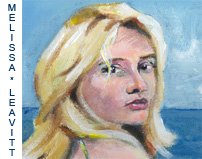 This guy knows his stuff.
This guy knows his stuff.Yes, it is geared towards screenwriting, but the much or most can be applied to romance writing.
I'll quote directly here:
"Story Values are the universal qualities of human experience that may shift from positive to negative, or negative to positive, from one moment to the next." p.34*
"A Story Event creates meaningful change in the life situation of a character that is expressed and experienced in terms of a value and ACHIEVED THROUGH CONFLICT." p.34*
"A SCENE is an action through conflict in more or less continuous time and space that turns the value-charged condition of a character's life on at least one value with a degree of perceptible significance. Ideally, every scene is a STORY EVENT." p.35*
"If the value-charged condition of the character's life stays unchanged from one end of a scene to the other, nothing meaningful happens. The scene has activity- talking about this, doing that- but nothing changes in value. It is a nonevent.
Why then is the scene in the story? The answer is almost certain to be "expositions." It's there to convey information about characters, world, or history to the eavesdropping audience. If exposition is a scene's sole justification, a disciplined writer will trash it and weave its information into the (book) elsewhere.
No scene that doesn't turn." p. 36*
Sooo, if the scene or even the chapter starts with hero happy, happy, happy, then he/she becomes sad, then becomes happy, happy happy, we have a nonevent. There is no progression. It might be interesting, but probably not.
If the chapter starts with character progressing from despair to elation, now that's progression! You can even but that up against the next chp... end of first, hero is happy. Start of next, hero is upset or sad. It can make the overall rhythm of the story interesting and make the reader turn pages to find out what happened.
Very interesting, indeed.
M.
* "Story" by Robert McKee. Regan Books, An Imprint of HarperCollinsPublishers, Copyright 1997.



1 comment:
Thx for the great advice on writing books Melissa!
Post a Comment